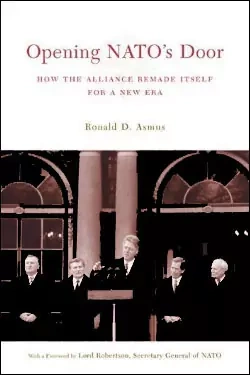
Opening NATO's Door

- Book
- Foreign policy analyses written by CFR fellows and published by the trade presses, academic presses, or the Council on Foreign Relations Press.
How and why did NATO, a Cold War military alliance created in 1949 to counter Stalin's Soviet Union, become the cornerstone of a new security order for post-Cold War Europe? Why did the United States not retreat from Europe after communism's collapse, but instead launch the greatest expansion of the American commitment to the old continent in decades? Council Fellow Ronald Asmus, who as a former key adviser to Secretary of State Madeleine Albright was one of the architects of NATO enlargement, draws on State Department classified archives to answer these and other questions.
The political battle over NATO enlargement was the first serious debate about national security strategy since the Cold War. It forced the United States to answer basic questions about America's relations with Europe, NATO, and Russia. In this definitive account, Asmus sheds new light on the Clinton administration's strategy to open NATO to new members and argues that this was part of a broader U.S. effort to modernize the alliance for a new era in which the United States and Europe would face new global threats together.
More on:
One of the earliest intellectual advocates of NATO enlargement to central and eastern Europe in the early 1990s, Asmus documents how the administration sought to develop a rationale for a new NATO that would bind the United States and Europe together as closely in the post-Cold War era as they had been during the fight against communism. Opening NATO's Door illuminates the ideas, politics, and diplomacy behind the historic decision to expand NATO to the east.
A Council on Foreign Relations Book
More on:
 Online Store
Online Store